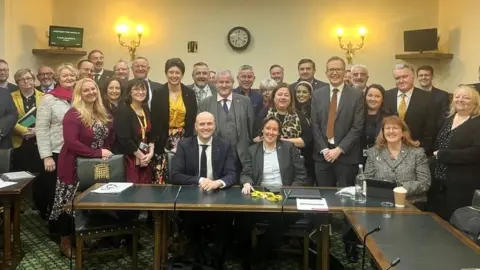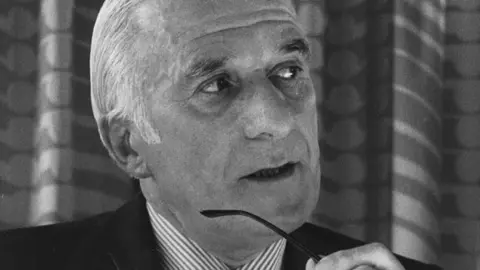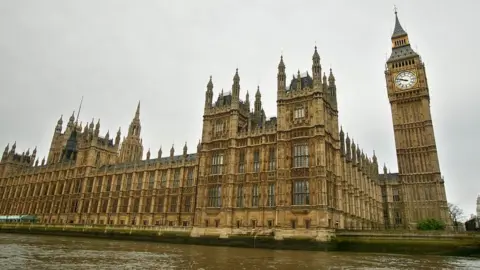What is House of Commons Short Money?
The SNP currently has no auditors and could lose out on £1.2m in "Short Money" if it fails to submit its accounts by 31 May.
While UK political parties rely on donations to fund their campaigning activities, Short Money is public funding that allows opposition parties to carry out their parliamentary work.
The SNP's Westminster leader Stephen Flynn confirmed that his party group could miss out on this cash if it misses the accounts deadline.
How is Short Money calculated?
 Twitter/@stephenflynnmp
Twitter/@stephenflynnmpTo qualify for Short Money a party must have at least two MPs, or one MP and more than 150,000 votes.
As of April 2022, the amount payable to qualifying parties is £19,401 for every seat won by a party at the last general election plus £38.75 for every 200 votes gained by the party.
There is also a travel fund of £213,132 which is shared between the parties in line with the same formula.
The leader of the opposition is also given £903,907 to run their office.
Labour will this year receive £7m which includes a payment of almost £904,000 to run the leader of the opposition's office.
The SNP is in line to receive £1.2m, the Lib Dems £953,000, the DUP £208,000, the Green Party £192,000, the SDLP £114,000 and Plaid Cymru £114,000.
Why was Short Money introduced?
 Keystone/Getty Images
Keystone/Getty ImagesShort Money takes its name from former Labour MP Edward Short who was instrumental in its introduction as leader of the House of Commons in 1974 and 1975.
The original idea was to create more of a level-playing field for opposition parties.
The governing party has access to the full might of the civil service machine to formulate its policies. To hold ministers properly to account, opposition party MPs should be able to employ researchers and carry out detailed policy work.
It is meant to be used on policy research for frontbench spokesmen and to pay staff salaries in the Whips and leader of the opposition's offices. It is not meant to be used for political campaigning or paying staff salaries at party HQ.
How do parties claim the money?
 Getty Images
Getty ImagesParties claiming Short Money must provide the accounting officer of the House of Commons (the clerk of the house) with an auditor's certificate confirming that all expenses claimed were incurred exclusively in relation to the party's parliamentary business.
They also have to provide information on staff employed and other costs funded through Short Money.
A similar scheme, Cranborne Money, after the then Leader of the House of Lords, was agreed on 27 November 1996, to provide financial assistance for opposition parties, in the House of Lords.
